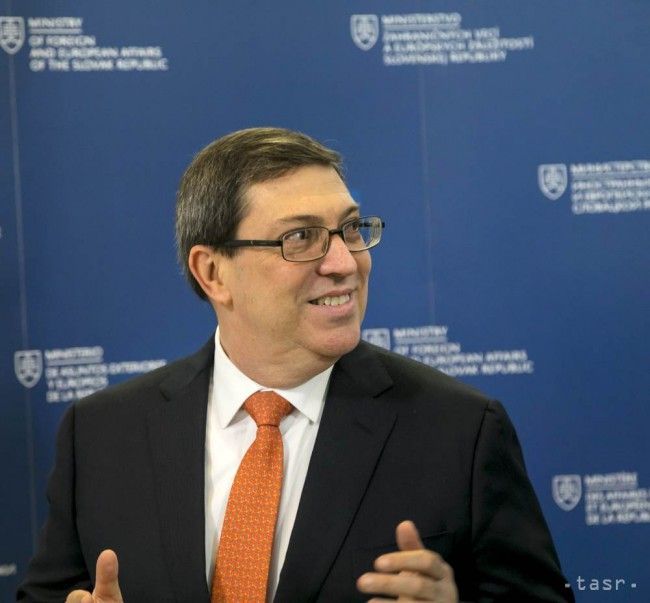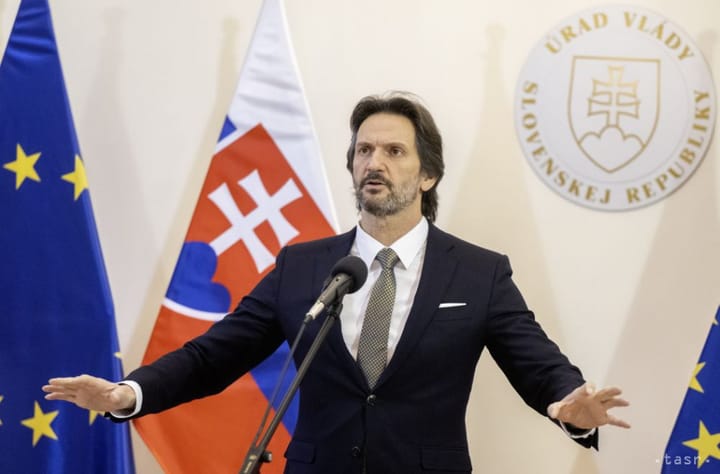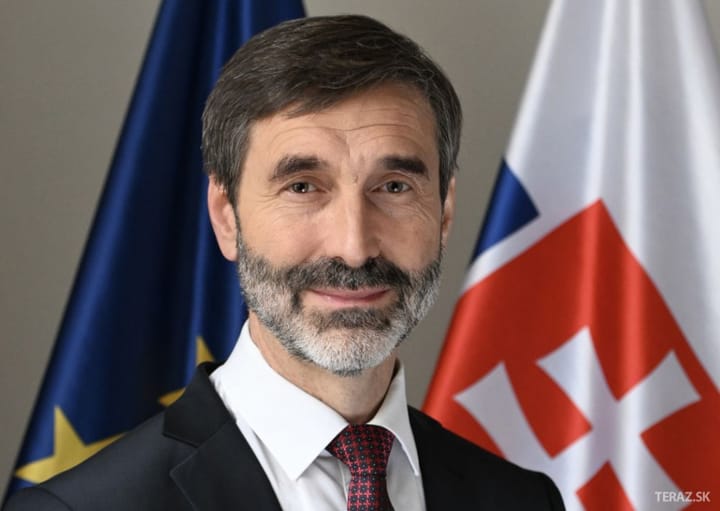Cuban Minister: We Don't Care What USA Thinks about Ties with Slovakia & EU

Bratislava, June 20 (TASR) – Cuba doesn’t care what the United States thinks about its relations with the EU, including Slovakia, Cuban Foreign Affairs Minister Bruno Rodriguez Parrilla told TASR in an exclusive interview on Tuesday.
Parrilla spoke in response to more stringent US foreign policy towards Cuba announced by American President Donald Trump in Florida last week.
Bruno Rodriguez is the first Cuban Foreign Affairs Minister to make an official visit to the independent Slovakia.
“In Cuba’s view, relations with Slovakia or the EU don’t go through Washington. We don’t care what Washington thinks about our ties with the EU or Slovakia,” said Bruno Rodriguez, stressing that ties between Cuba, Slovakia and Europe go way back in history and serve the interests of all countries involved.
“It’s in the interests of Cuba to maintain good relations with all countries of Europe, and this includes fomenting trade ties. What does this mean for Slovakia and Europe? You need to answer that yourselves, I don’t dare to voice my opinion. As for Cuba, however, if economic relations between the USA and Cuba take a turn for the worse or the American embargo becomes more stringent, our ties with Europe, including Slovakia, would become an even greater priority. On the other hand, if President Trump were to continue policy benefiting US national interests – i.e. improving economic ties with Cuba – even then relations with Slovakia and Europe would hold an equal if not greater importance for Cuba. This is because we take interest in ties with Europe on their own merit,” claimed the Cuban minister.
When asked whether or not tougher US policies towards Cuba are expected to last, Bruno Rodriguez replied that American presidents come and go. “Since the victory of the Cuban Revolution, the USA has seen eleven presidents so far, and Cuba still holds its place. On a personal note, I believe that there is the possibility of detente despite the words of US President Donald Trump last Friday,” said Bruno Rodriguez, adding that Trump’s rhetoric reminds him of the climate in the 1960s.
“I watched that speech on television, and I couldn’t shake the feeling that it was a throwback to some different era. I’m saying this based on the rhetoric employed and the type of people surrounding Trump,” said the minister, alluding to the advanced age of the audience attending the speech.
“President Trump was also surrounded by some of the fighters who took part in the Bay of Pigs invasion and also four terrorists, prosecuted on US soil for terrorism against Cuba. Every time Trump said something against Cuba, that group of people shouted: ‘USA! USA! USA!’, as if they were somewhere at Madison Square Garden. And they weren’t Cubans,” he said.
According to the minister, Trump’s address was suffused with a melodramatic tone. “One of the violinists [present] was introduced as a victim of Castroism, the son of a man executed in the first months of the Cuban Revolution in 1959. It turned out, however, that the father of this violinist – of course, the violinist himself can’t be blamed for this; if he’s to blame for anything, then it’s only for an occasional off-pitch note – was in reality an assassin hired by the dictatorship of Fulgencio Batista. He served as the police chief in Santiago de Cuba, in a poor region in the east of the country, and he murdered three young Cubans with his own hands. He was also involved with the group of people who murdered icon of the Cuban Revolution Frank Pais and his brother,” said the chief of Cuban diplomacy.
“The measures announced by President Trump are anything but innovative. These are copycat measures already carried out by ten previous American presidents, and they’ve been proven not to work. Einstein said in his time that constantly doing the same thing and expecting different results defines insanity,” he stated.



